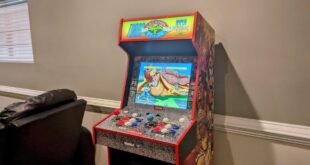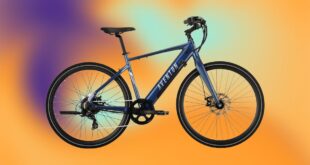Utah residents pay some of the lowest rates in the country for electricity, at less than 12 cents per kilowatt-hour in 2023. But the state also gets a lot of sunlight compared with other states.
These factors weigh heavily on the question of whether solar panels make sense in Utah. The answer depends on the math for your specific home and your specific energy needs, which a good solar panel installation company can help walk you through.
There are also some incentives that can help you cover the cost of solar panels. The federal residential clean energy credit will reimburse you for up to 30% of the cost of installing a solar system. The state’s net metering policy will also help you cut back on your electric bill — net metering allows you to receive credits by sending your excess generated energy back to the grid.
Here’s what you need to know before going solar in Utah, starting with the best solar panel installation companies operating within the state.
The best national solar panel installation companies in Utah
EnergyPal
Most flexible
EnergyPal is more than just a middleman. It’ll handle your solar installation from beginning to end while also allowing you to benefit from its proprietary engine and competitive bidding process. The company offers a range of hardware for panels, batteries and inverters, has plentiful financing options and offers responsive customer service support.
Freedom Forever
Best for cash customers
Include Freedom Forever in your search if you want the backing of a national company that installs a wide variety of the most popular solar equipment available. Freedom Forever also extends a couple of products that take some of the pain and risk out of going solar, like a production guarantee and an escrow option with cash purchases. Online reviews say customer satisfaction has been low of late, though the company says that’s changing.
Purelight Power
Newcomer with in-house installers
Purelight Power is the new kid on the block, but that doesn’t mean it’s second-rate. The solar company has been expanding rapidly into multiple states and has an in-house team that takes customers through every step of planning, permitting and installation. Warranty periods are fairly standard, but the company offers solar panels from companies like Silfab, SEG and Tesla Solar, battery options from Tesla Powerwall and Franklin Home Battery, and microinverters from Tesla.
Tesla Solar
Most affordable
Tesla’s solar branch seems to be the least loved of Elon Musk’s ventures. Even Tesla’s Solar Roof seems to get more love.
If price is the thing you won’t budge on, consider Tesla. By all accounts, Tesla installs quality panels and makes the closest thing there is to a household name in solar storage: the Powerwall.
Where you might miss out is customer service. Discussion online seems to suggest Tesla’s service is a bit of a gamble.
Local solar panel installation companies in Utah
Founded in 2014, Blue Raven Solar installs residential solar panels in 17 states, including Utah. Blue Raven Solar is a full-service solar company that guides customers from point of sale to installation. The company provides a financing option called BluePower Plus+. With Blue Raven Solar, you get a 10-year quality of work warranty and a 25-year manufacturer’s warranty. The company doesn’t currently provide solar leasing or power purchase agreements options.
Founded in 2013, Ion Solar serves eight states, including Utah. The company manages an entire solar project from beginning to end and provides post-installation services like 24/7 system monitoring and maintenance. Ion Solar offers solar financing to its customers in partnership with Sunlight Financial, Sunnova Energy and Mosaic. You get a 10-year quality of work warranty and 30-year product warranty.
Utah-based Mynt Solar installs residential and commercial solar systems and batteries in Utah, California and Nevada. It also offers repairs, maintenance and post-installation monitoring. The company handles the entire installation process in-house and offers a 1-year money-back energy generation guarantee on all the systems it installs. Solar panels bought through Mynt Solar will have 30-year product, performance and labor warranties. Mynt Solar provides a solar loan at 2.99% for 20 years with no money down. However, the company doesn’t offer solar leases or power purchase agreements.
Smart Wave Solar installs solar panels and batteries. Based in Bluffdale, Utah, the company fulfills all installations in-house instead of using subcontractors. Smart Wave Solar installs components from Silfab, Solaria and REC Solar. Because most solar systems stop operating during a power outage, Smart Wave Solar offers an emergency power supply for your solar system at no additional cost. Systems include 25-year production, quality of work and parts warranties.
How to determine which solar company in Utah is best
Going solar is a big deal. Treat it that way. This is a purchase that will likely cost more than $10,000 and will be a major part of your home for decades. Choose an installer carefully.
Start by seeking out companies with good reputations. Ask people you know who’ve gotten solar panels and see what their experience was like with the installer they chose. Then have each company on your list come to your home and give you an estimate. Make sure the estimate takes into account the particular nature of your house and your energy needs. Evaluate each one not just on price, but on the company’s service offerings, equipment and reputation.
Cost of solar panels in Utah
Here’s a look at the average cash price for a typical solar panel system in Utah before factoring in tax credits and incentives, according to data from FindEnergy.com. Keep in mind that your system might become more expensive if you choose to include solar batteries or additional equipment in your purchase.
Average cost of solar panels in Utah
| Typical system size (kW) | Price per watt | Total installed cost | Cost after 30% federal tax credit | |
| Utah | 5 | $3.35 | $16,750 | $11,725 |
| National average | 5 | $3.56 | $17,800 | $12,460 |
The map below shows the average total cash price, cost per watt and system size for a typical solar panel system in your state, according to data from FindEnergy.com. This data doesn’t factor in tax credits or state incentives. Certain states don’t have any FindEnergy solar data and are grayed out on the map.
Utah solar panel incentives or rebates
You have several incentives to help you lower the total cost of solar in Utah. The federal residential clean energy credit is the most significant cost-saving incentive for new solar owners. You can deduct 30% of your solar system’s cost from your federal income taxes, with no limit on system size. With the extension of this tax credit by Congress in 2022, all solar systems installed between 2022 and 2032 will qualify for this benefit.
Utah solar incentives
| Program | Description |
|---|---|
| Renewable energy system tax credit | Utah offers a tax credit limited to $400 or 25% of your solar equipment’s installation costs. The credit expires in 2023 |
| Net metering | Net metering allows you to sell your excess power to the grid for credits on your power bill. Utah doesn’t mandate net metering but some voluntarily offer the program. Check with your local utility for details. |
| Solar easement and access laws | Utah’s solar easement and access laws are similar to easement laws in other states. If you want to go solar, you can voluntarily enter an easement contract with your neighbors to remove any obstacles to your solar panels accessing sunlight. Utah’s solar rights law stops homeowners and other community associations from imposing bans and unreasonable restrictions on solar panel systems. |
How solar-friendly is your state?
CNET recently ranked states based on their residential solar policies: the laws and regulations affecting consumer-level solar panel installation and adoption. These policies play a major role in determining how accessible and affordable a solar panel system is to the average resident.
Each state was evaluated through a methodology and scored based on eight categories. The final score was converted to a letter grade.
Here’s how your state scored on CNET’s solar policy test.
Utah
Grade: F
Incentives available:
- State-governed net billing
Strongest scoring categories:
Utah edges out the lowest scoring states in the rankings due to a much higher per capita investment in the solar industry. At the end of the day, that doesn’t translate to more incentives for residents looking to go solar — Utah only offers state-governed net billing to those making the solar switch.
Categories to improve:
While Utah might rank slightly higher than the bottom scorers, it faces all of the same problems when it comes to state solar incentives. The Beehive State could improve by creating a state solar credit, legislating state-governed retail rate net metering, instituting property and sales tax exemptions or ensuring that low-income solar programs are available statewide.
Solar financing options in Utah
The upfront cost of solar panels can be high for most Americans. But there are several options to pay for solar panels in Utah. You can purchase solar panels outright or finance them with loans. These options allow you to fully own the panels and recoup your costs in a few years. On average, the solar payback time, the period it takes for your energy savings to surpass the cost of investing in solar, is six to 12 years after you buy your solar panels. If you can’t afford to buy or get a loan to finance solar panels, signing a lease or a power purchase agreement are other alternatives. Here are the options you have for financing your solar panel system.
Cash: Paying for the solar panel system upfront will drastically shorten your solar payback period, but most people don’t have the five-figure sum on hand that you’ll need for this purchase. If you’re able to put down the cash, though, this might be the best option for you.
Personal loans/solar loans: There are special solar loans that financial institutions might offer near you. This usually happens when a bank or credit union is partnered with a solar installer, so this might be a good financing option. If you can’t lock down a solar loan, there are always personal loans instead. Keep in mind that unsecured personal loans tend to have more favorable rates and they aren’t collateral-backed loans.
Solar lease: For a set monthly fee, you’re able to lease your solar panels from a solar installer. This provides the slashed energy rates associated with solar energy, but you’re not able to take advantage of tax credits or other financial incentives associated with solar panel systems. This could be the most favorable financing option for retirees or other people who don’t have a high taxable income.
Power purchase agreement: Similar to solar leases, you don’t own your solar panels when you enter into a PPA. Instead, you get a free solar panel installation and then pay the solar installation company for the energy produced. Power purchase agreements have many pros and cons, so it’s best to read up on them before locking in one of these contracts.
HELOCs/Home equity loans: These are both loans that may allow you to finance your solar panel system, but it’s best to keep in mind that failing to repay these types of loans can lead the financial institution to claim your home as collateral.
Read more: Want something smaller than a whole-home solar system? See our picks for the best portable solar panels and solar generators.
Installation factors to consider
Numerous factors can help you determine whether it makes sense to go solar. Your particular home may have something specific that could make solar a bad investment. It’s good to consult a professional and licensed solar panel installer to discuss these and receive quotes from at least three companies before picking one.
Insurance on your solar panels: Many homeowners insurance companies cover solar panels in their policies. Before investing in solar panels, find out if your insurance company can protect them. If they do, remember to add them to your policy after installation.
Shading around your property: Your solar panels can generate electricity with some tree shading, but heavy shading can make solar panels a bad fit. A professional solar installer can help you understand your situation
Renting or owning your home: Renters typically have difficulty installing solar panels because they don’t own their homes. Landlords will determine whether they want solar panels on rental units. One way for renters to get green energy is to enroll in a community solar program.
Roof: Determining your roof’s age and condition is critical before installing solar panels. If your roof is more than 20 years old or in poor shape, you may want to replace your roof before you install solar panels to avoid a much costlier replacement after installation.
How we found the best solar panel companies
The companies we listed above as “the best” are curated from CNET’s best solar companies list. Companies making the best list are scored on the equipment, warranties and customer service they offer. Then, we make sure these recommendations are available in your state. You can read a full breakdown of how we review solar companies here.
Companies listed under the local installers were chosen in a less rigorous way. We chose them because they offered something unique or notable to customers in the state, they seemed well-regarded by internet reviewers or because they were one of the few installers we could find information on in the state.
Whether we’ve completed a full review on a company or not, it’s always a good idea to get multiple quotes from different installers before choosing a company.
Utah solar power FAQs
Are all solar panels the same?
No, not all solar panels are the same. Solar panels can differ from one another in efficiency, size, wattage and more.
How do I know if solar is the right fit for me?
There is no uniform answer to this question since every home and family has unique needs and situations. Your electricity rates, consumption habits, local incentives, installation costs and the shape and size of your roof are some factors that determine whether solar makes sense for you. The best way to find an answer to this question is to consult a licensed and experienced solar installer.
How many solar panels does my house need?
The number of solar panels you need will depend on several factors, including your current electricity usage, the amount of energy you want from solar generation, your home’s size, shading around your property and the solar panel output. A professional solar installer can help you determine the number and capacity of solar panels.
Do solar panels operate during a power outage?
Grid-tied solar panel systems shut off during a power outage to prevent utility workers fixing transmission lines and substations from being harmed by electricity sent to the grid. But companies like Enphase and SMA sell inverters that disconnect from the grid during a blackout and deliver electricity to your home from your solar panels. Using such inverters with solar batteries is the best way to ensure a continuous electricity supply.
 meganwoolsey Home
meganwoolsey Home



